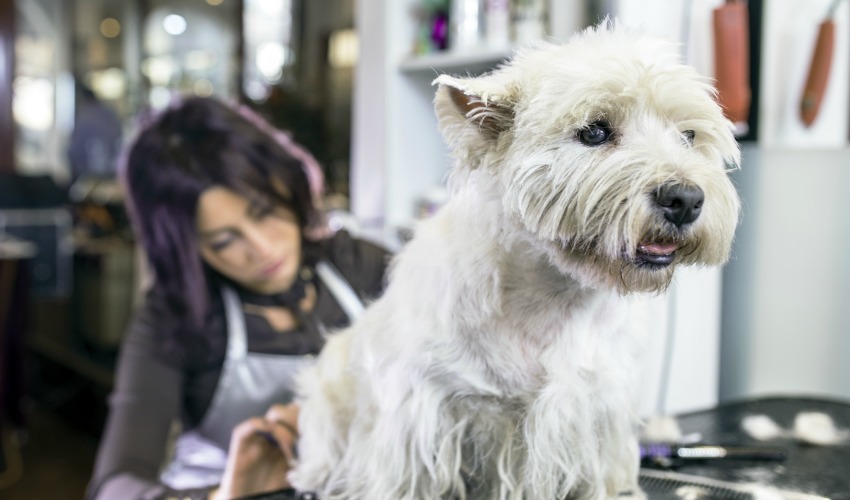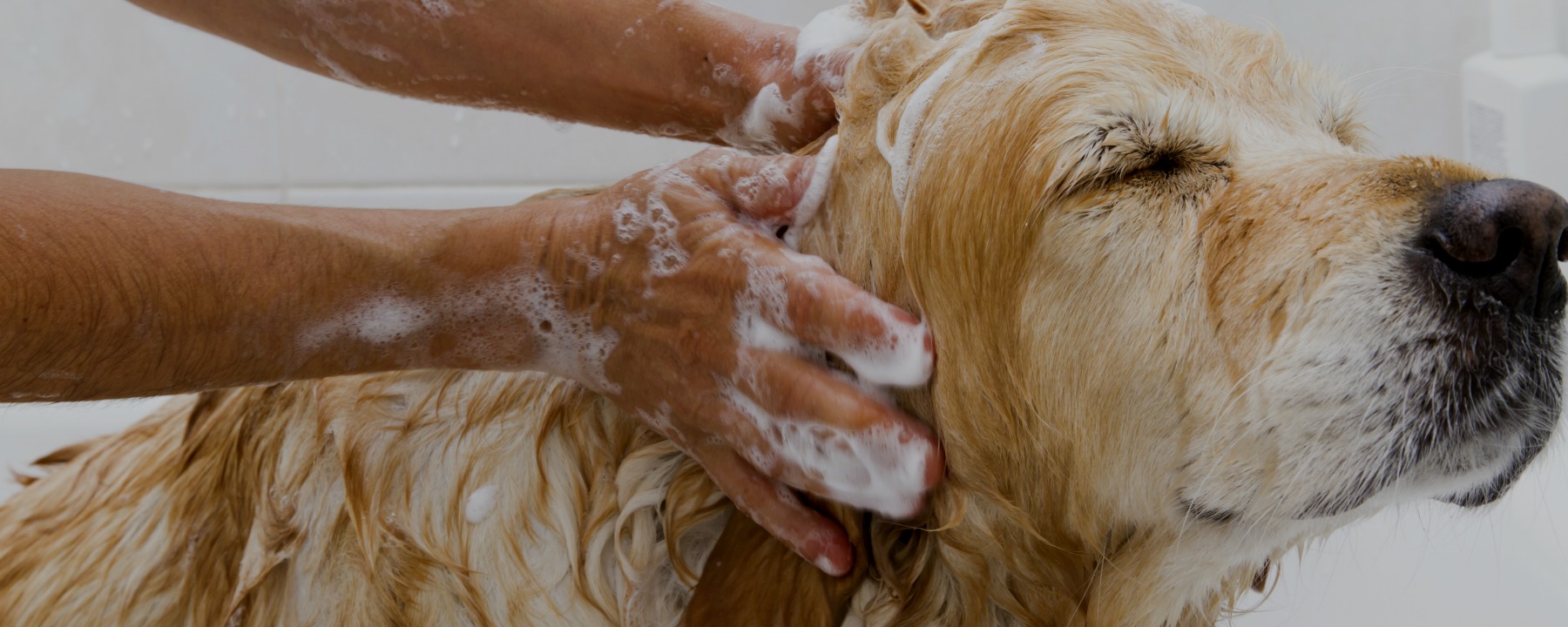When you visit the hair salon you can tell your stylist exactly what you want, whether it’s a quick dry trim or a totally new style. Unfortunately, your canine clients don’t have the same luxury—you have to rely on their owners’ instructions and your own judgements.
You’ll never know exactly what the dogs you groom want out of their grooming session, but we’ve got a few good guesses as to what they think you could be doing differently. If these 6 things aren’t part of your grooming process already, start changing up your routine. Your dogs will thank you for it!
1. Teach my owner how to take care of my coat
Every groomer will see her fair share of mats, hot spots, and other coat issues. It’s your job to help fix these issues—but you can also try to make sure they don’t happen again. Coat issues rarely happen because of “bad” owners. Lots of dog owners don’t realize how much maintenance their dogs’ coats need. Others may be diligent but misguided. Brushing a Poodle with a curry comb isn’t going to do much for his coat, even if his owner does it every day!
Every time you notice coat issues such as mats, hot spots, or brush burns, address it with the client. You don’t want to sound accusatory—just let them what you found and what you think might have caused it. Before your client leaves the salon, try to come up with a solution. Be realistic (and nonjudgmental!) about your client’s habits and lifestyle. If she isn’t going to brush her dog regularly at home, he needs to come in more often. On the other hand, if your client has trouble sticking to a four-week grooming schedule, she’ll need to pick up more of the work at home to keep Fido happy and healthy.

2. Give me a break
We don’t need to tell you that a long grooming sessions are exhausting—but have you considered what it’s like to be on the other end? Grooming isn’t always a comfortable process for dogs. It can be stressful and tiring to spend an hour or more on the grooming table. Just like you need a few coffee breaks throughout the day, the dogs you’re grooming could use a few minutes to relax.
Split up a long groom by giving dogs the chance to sit or lie down for a few minutes. This especially important for senior dogs or dogs with mobility issues. These dogs may actually need several breaks throughout a session to stay comfortable. During a particularly long session you can also take dogs out for a quick bathroom break.
3. Pay attention to my body language
Most dogs really, really don’t want to bite you—seriously! For the majority of household dogs, biting is the last resort they don’t want to use. Most groomers agree that any bites you end up sustaining over the course of your career are probably your own fault. If a dog is getting stressed or scared he’ll usually use a number of signals to tell you to back off before he tries to bite.
A few signs to look out for include:
- Growling, barking, or whining
- Baring teeth
- Flattening ears
- Snapping at the air
- Lunging or jumping
Any of these signs can tell you that it might be time to take a quick cool-down break or try something else. Dogs can also bite as an instinctive pain reaction, so watch for limping or tender movements when a dog comes in to catch any sore spots early on.

4. Don’t always listen to my owner
After a year or two in the grooming industry, you will have heard it all before:
- “Can you shave him for the summer to keep him cool?”
- “Can you shave him to stop him shedding all over my house?”
- “He’s a little matted, but can you keep his coat nice and long?”
- “I saw a Bichon Frise with an amazing dye job on Instagram. Can you make my black Newfoundland look like that?”
We get it, dog owners, we really do. You want your dog to look his cutest and feel his most comfortable—but sometimes those decisions are best left to a professional! Negotiating with clients can be difficult, but if you help them understand your reasoning most will start seeing things from your perspective. Avoid making promises you can’t keep—no, you will not be bleaching a Newfoundland’s coat for a cosmetic dye job—and conduct a thorough evaluation of every dog before deciding on a grooming plan with your client.
5. Stay calm!
Have you ever been around someone who’s so stressed out that you start to get anxious yourself? That’s what it’s like for a dog to be groomed by a nervous groomer. You wouldn’t want a stressed out hairdresser fluttering around your head with sharp scissors, and neither does the dog on your grooming table. Dogs can pick up on your anxiety through your body language, tone, and touch, so be sure to stay calm, relaxed, and confident throughout the groom. A calm dog makes for an easy groom!

6. Check me for problems
You’re not a vet, but you’re still a major part of a dog’s healthcare team. Because you’re up close and personal with a dog’s coat, skin, ears, eyes, and mouth, you’re often more likely to notice problems than a dog’s owner. During the groom, look out for bumps, lumps, scabs, sores, abrasions, bug bites, tender spots—basically, anything out of the ordinary. Even if it doesn’t directly affect your grooming work, it’s worth letting your client know that there’s an issue they might want to get checked out by a vet. That high-velocity dryer exposes everything, so make the most of it!
Your dogs can’t talk, but your clients certainly can! Are you ready to answer these common client questions?



